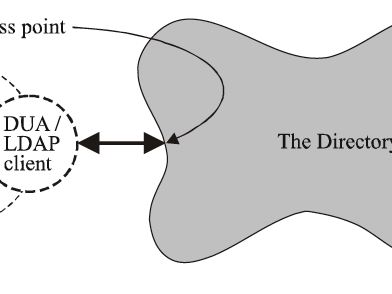ssh免密登录在带来方便的同时也带来一些问题,那就是不知道什么时间什么人利用ssh免密通道登录服务器了,为此我们需要在sshd的配置文件里设置好详细日志,以便日后回溯。
在CentOS里,sshd的日志文件是保存在/var/log/secure里的,如果不进行特殊设置的话,它只记录一些最简单的信息,比如什么时间哪个账号被人用免密登录的方式登录了,如果这个账号的authorized_keys里有很多key的话,这样的log没有办法告诉你客户到底是用哪个key登录的。
所以,我们需要在sshd的配置文件/etc/ssh/sshd_config文件里找到以下项LogLevel并把它改成LogLevel VERBOSE,这一项的缺省值是INFO,不够详细,所以我们需要把它改成啰嗦模式,这样可以记录更多信息。
改成VERBOSE并重启sshd(service sshd restart)后,我们会在日志文件里看到类似于这样的记录:
Apr 1 10:37:06 hostname sshd[5903]: Found matching RSA key: 83:67:b5:c7:bb:17:4d:06:ca:dc:8b:ca:85:cc:0c:b1
但这样的信息明显不同于我们在authorized_keys里存放的信息,那该怎么办呢?实际上,在sshd的日志文件里存储的只是我们authorized_keys的指纹信息fingerprint,不是真正的key,必须从authorized_keys反算出fingerprint来,才能做对比:
ssh-keygen -E md5 -lf /home/someuser/.ssh/authorized_keys
但是这样依然很麻烦,有没有办法直接告诉我日志里到底是谁登录的呢?为此我们还需要引入一个用Perl写的小程序。(原作者写的略有问题,在新版的CentOS里必须要求附加md5参数,为此我做了一些小的修改):
#!/usr/bin/perl -wuse strict;use diagnostics;use File::Temp;# Matches Fingerprints from sshd logs (sshd on loglevel VERBOSE) against# authorized_keys for the respective user.die "Please specify input file!\n" unless ($ARGV[0]);my $fingerprints;my $nav = File::Navigate->new($ARGV[0]);# Store publickey login eventsmy @lines = @{$nav->find(qr/sshd\[\d+\]: Accepted publickey for .+ from .+ port \d+/)};# Process all publickey login eventsforeach(@lines){
$nav->cursor($_); my $line = $nav->get();
$line =~ /^(.{15}).+sshd\[(\d+)\]: Accepted publickey for (.+) from (.+) port (\d+)/; my $date = $1; my $pid = $2; my $user = $3; my $ip = $4; my $port = $5; my $fp = "unknown"; # (yet)
# Seek backwards to find matching fingerprint line
my $sought = 0; while ((my $seekline = $nav->getprev()) and ($sought++ < 1000)){ if ($seekline =~ /sshd\[$pid\]: Found matching .+ key: (.+)/){
$fp = $1; last;
}elsif($line =~ /sshd\[$pid\]: Connection from $ip port $port/){ last;
}
} my $key = get_key($fp, $user); print "\"$date\";\"$user\";\"$fp\";\"$key\"\n";
}sub get_key{ my $fp = shift;
$fp = "MD5:" . $fp; my $user = shift; # See if FP is cached
if ($fingerprints->{$user}){ if ($fingerprints->{$user}->{$fp}){ return $fingerprints->{$user}->{$fp};
}else{ return "No matching key found.";
}
} # Else, generate fingerprints from users authorized_keys
print STDERR "------> Reading keys for user $user\n"; my $home = (getpwnam($user))[7]; open my $fh_in, "<$home/.ssh/authorized_keys" or warn "No such file: $home/.ssh/authorized_keys\n"; while (<$fh_in>){ chomp; next unless (/^ssh-/); my $out_fh = File::Temp->new(); print $out_fh "$_\n"; close $out_fh; my $fp_raw = `ssh-keygen -E md5 -lf $out_fh`; # Second field of output has the fingerpring
my $fp = (split /\s+/, $fp_raw)[1];
$fingerprints->{$user}->{$fp} = $_;
} if ($fingerprints->{$user}->{$fp}){ return $fingerprints->{$user}->{$fp};
}else{ return "No matching key found.";
}
}package File::Navigate;use strict;use warnings;=head1 NAME
File::Navigate - Navigate freely inside a text file
=head1 DESCRIPTION
The module is a glorified wrapper for tell() and seek().
It aims to simplify the creation of logfile analysis tools by
providing a facility to jump around freely inside the contents
of large files without creating the need to slurp excessive
amounts of data.
=head1 SYNOPSIS
use File::Navigate;
my $nav = File::Navigate->new('/var/log/messages');
# Read what's below the "cursor":
my $first = $nav->get;
# Advance the cursor before reading:
my $second = $nav->getnext;
my $third = $nav->getnext;
# Advance the cursor by hand:
$nav->next;
my $fourth = $nav->get;
# Position the cursor onto an arbitrary line:
$nav->cursor(10);
my $tenth = $nav->get;
# Reverse the cursor one line backward:
$nav->prev;
my $ninth = $nav->get;
# Reverse the cursor before reading:
my $eigth = $nav->getprev;
# Read an arbitrary line:
my $sixth = $nav->get(6);
=cutour @ISA = qw(Exporter);our @EXPORT_OK = qw();our $VERSION = '1.0';=head1 CLASS METHODS
=head2 I<new()>
Open the file and create an index of the lines inside of it.
my $mapper = File::Navigate->new($filename);
=cutsub new($){ my $class = shift; my $file; unless ($file = shift){ die "No file specified\n";
} unless (-e $file){ die "File not found: $file\n";
} unless (-r $file){ die "File not readable: $file\n";
} my $self = {};
$self->{'cursor'} = 1;
$self->{'lineindex'} = {};
$self->{'lineindex'}->{1} = 0; open my $fh, "$file"
or die "Can't open $file: $!\n"; while (<$fh>){ my $thisline = $.; my $nextline = $thisline + 1;
$self->{'lineindex'}->{$nextline} = tell $fh;
}
$self->{'length'} = scalar(keys %{$self->{'lineindex'}}) - 1 ;
$self->{'fh'} = $fh; bless $self;
}=head1 OBJECT METHODS
=head2 I<count()>
Returns the number of lines in the file ("wc -l")
my $lines = $nav->count;
=cutsub length(){ my $self = shift; return $self->{'length'};
}=head2 I<cursor()>
Returns the current cursor position and/or sets the cursor.
my $cursor = $nav->cursor(); # Query cursor position.
my $cursor = $nav->cursor(10); # Set cursor to line 10
=cutsub cursor($){ my $self = shift; if (my $goto = shift){
$self->{'cursor'} = $goto;
} return $self->{'cursor'};
}=head2 I<get()>
Gets the line at the cursor position or at the given position.
my $line = $nav->get(); # Get line at cursor
my $line = $nav->get(10); # Get line 10
=cutsub get($){ my $self = shift; my $fh = $self->{'fh'}; my $getline;
$getline = $self->{'cursor'} unless ($getline = shift); if ($getline < 1){ warn "WARNING: Seek before first line."; return undef;
}elsif($getline > $self->{'length'}){ warn "WARNING: Seek beyond last line."; return undef;
} seek ($fh, $self->{'lineindex'}->{$getline}, 0); my $gotline = <$fh>; chomp $gotline; return $gotline;
}=head2 I<next()>
Advance the cursor position by one line. Returns the new cursor position.
Returns I<undef> if the cursor is already on the last line.
my $newcursor = $nav->next();
=cutsub next(){ my $self = shift; if ($self->{'cursor'} == $self->{'length'}){ return undef;
}
$self->{'cursor'}++; return $self->{'cursor'};
}=head2 I<prev()>
Reverse the cursor position by one line. Returns the new cursor position.
Returns I<undef> if the cursor is already on line 1.
my $newcursor = $nav->prev();
=cutsub prev(){ my $self = shift; if ($self->{'cursor'} == 1){ return undef;
}
$self->{'cursor'}--; return $self->{'cursor'};
}=head2 I<getnext()>
Advance to the next line and return it.
Returns I<undef> if the cursor is already on the last line.
my $newcursor = $nav->getnext();
=cutsub getnext(){ my $self = shift;
$self->next or return undef; return $self->get;
}=head2 I<getprev()>
Reverse to the previous line and return it:
Returns I<undef> if the cursor is already on line 1.
my $newcursor = $nav->getprev();
=cutsub getprev(){ my $self = shift;
$self->prev or return undef; return $self->get;
}=head2 I<find()>
Find lines containing given regex. Returns array with line numbers.
my @lines = @{$nav->find(qr/foo/)};
=cutsub find($){ my $self = shift; my $regex = shift; my @results; for (my $lineno = 1; $lineno <= $self->{'length'}; $lineno++){ my $line = $self->get($lineno); if ($line =~ $regex){ push @results, $lineno;
}
} return \@results;
}sub DESTROY(){ my $self = shift; close $self->{'fh'};
}=head1 EXAMPLE
I<tac>, the opposite of I<cat>, in Perl using File::Navigate:
#!/usr/bin/perl -w
use strict;
use File::Navigate;
foreach my $file (reverse(@ARGV)){
my $nav = File::Navigate->new($file);
# Force cursor beyond last line
$nav->cursor($nav->length()+1);
print $nav->get()."\n" while $nav->prev();
}
=head1 BUGS
Seems to lack proper error handling.
=head1 LIMITATIONS
Works only on plain text files. Sockets, STDIO etc. are not supported.
=head1 PREREQUISITES
Tested on Perl 5.6.1.
=head1 STATUS
Mostly harmless.
=head1 AUTHOR
Martin Schmitt <mas at scsy dot de>
=cut1;为此我们给它起名叫match-ssh-keys,赋予它可执行权限(chmod +x match-ssh-keys),然后把它搬到/usr/local/bin里(mv match-ssh-keys /usr/local/bin/),这样我们以后再想查谁通过sshd免密登录过服务器就方便了,我们只需要执行:
match-ssh-keys /var/log/secure
就可以了。

 支付宝微信扫一扫,打赏作者吧~
支付宝微信扫一扫,打赏作者吧~


